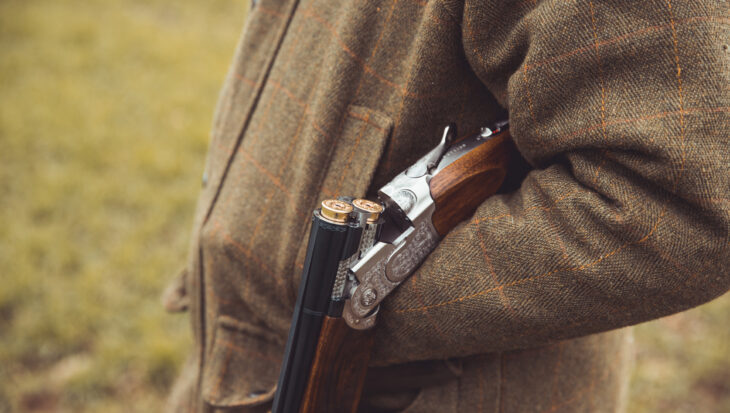Ban on the use of lead shot – finally!
Posted 10 Jul 2025

Posted on the 29th January 2005
Animal Aid has achieved a major breakthrough in our five year campaign to ban all 'sport' shooting.
The following coverage comes from the Guardian (January 29, 2005):
An organisation that represents and promotes game shooting has condemned its own members for the “horrific conditions” in which they rear pheasants so that country estates can charge “visiting guns” £1,000 a day to shoot them. In an unprecedented alliance, the British Association for Shooting and Conservation (BASC) is joining forces with Animal Aid, an organisation dedicated to banning their sport, to issue a joint call on Monday for a ban on battery cages for pheasant breeding.
The council of the BASC has thanked Animal Aid for providing video and other evidence that convinced it it had to take a stand against the battery cages in which millions of pheasants are reared each year so they can be shot.
This type of cage is banned for chickens and other birds reared for food. But the pheasants are considered by the Department for Environment, Food and Rural Affairs to be reared for sport, not human consumption, so the system is exempt from such rules.
Birds are kept in small wire cages, and some wear hoods to prevent them from pecking each other to death. The eggs and chicks produced are sold on to country estates for about £1 each. The estates fatten up the pheasants and release them in September, around a month before the shooting season starts. Guns typically shoot up to 50 brace a day, but they cannot eat all the birds they shoot, so some are buried. The shooting season ends next week.
BASC’s council, which is elected from its 122,000 members, said it would work for the removal of the battery cage system and consult with members about ways to safeguard the welfare of the 25m birds a year that are bred to be shot. It said that they were being reared in “appalling conditions”.
“Council states unequivocally, on the basis of what has been presented to us so far, that battery-type cage laying systems for pheasants and partridges are incompatible with the values of BASC and the future of game shooting,” the association said in a statement.
Its spokesman, Simon Clarke, added:
“BASC has taken a strong and principled stand against the use of battery-type cages. We urge all our members to check the provenance of their birds and to refuse to buy them if they originate from a cage system. As people turn to locally produced food, reared in an ethical and sympathetic way, it is counter-productive for shooting sports to take the retrograde step of introducing battery-type rearing systems.”
Mr Clarke said that Animal Aid had provided convincing evidence of birds being stressed and physically damaged. “Over-treading and feather-pecking are particular concerns,” he said.
While domesticated poultry could adapt to intensive production, pheasants were naturally more aggressive and Animal Aid’s photographic evidence showed birds in an obviously distressed state, Mr Clarke said. He said the battery system made the eggs 10p each cheaper, and that the system had been introduced by the French, who were exporting eggs to the UK and undercutting local producers. To compete, some British members had adopted the same methods. He said that BASC condemned this, and did not believe sportsmen would want birds to be reared in such conditions.
Andrew Tyler, the director of Animal Aid, said that the hundreds of battery cages the organisation had filmed in Wales extended over an area of two football pitches and contained thousands of birds in poor condition – “pecked, plucked, bloody and trampled”.
“We think the breeding of birds for the pleasure of shooting them is an outrage anyway,” he said. “Our opposition to such practices and to ‘game’ bird killing in general is more than vindicated, in our view, by this unprecedented and welcome public statement by the BASC.”
Posted 10 Jul 2025

Temperatures are rising and it’s time to get outdoors, enjoy the weather and tuck into some delicious vegan food! Thanks to an abundance of plant-based options now available, there’s an alfresco option for every tastebud...
Posted 09 Jul 2025
